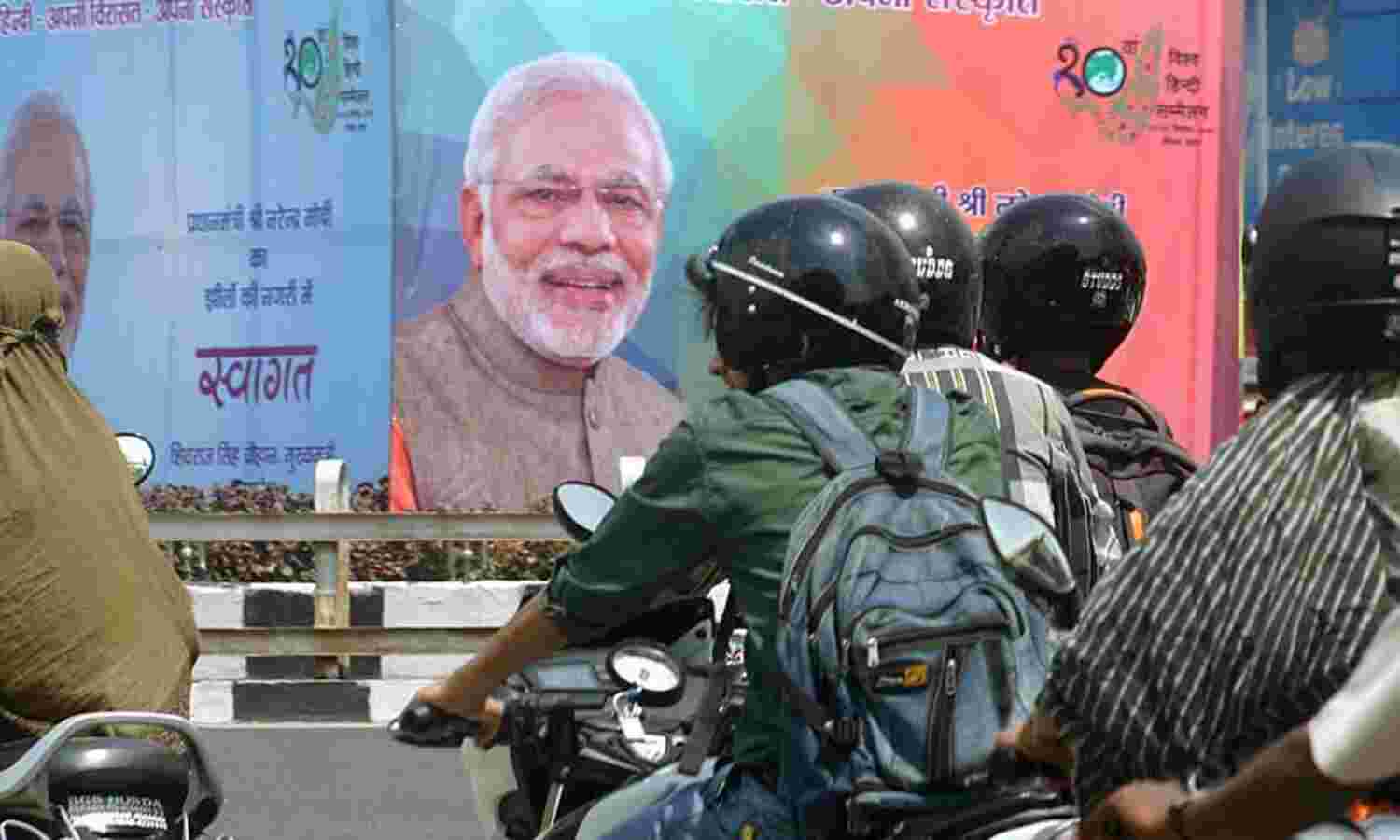Govt Ad Spend Could Feed 46 Million Children Mid-Day Meals For A Year

Mumbai: Midday meals for 45.7 million children for a year. One day’s wages for 200 million workers under the Mahatma Gandhi National Rural Employment Guarantee Scheme (MNREGS). About 6 million new latrines. And at least 10 more Mars missions.
These were some of the things that could have been financed with the money that the current National Democratic Alliance (NDA) government spent on publicity in the four years it has governed India.
The Bharatiya Janata Party-led government spent Rs 4,880 crore ($753.99 million) on advertising its flagship schemes in the 52 months between April 2014 and July 2018, according to the information made available to the Rajya Sabha (Parliament’s upper house) by Rajyavardhan Rathore, minister of state (Independent Charge) for information and broadcasting.
This amount is double the sum spent by the government’s predecessor in 37 months: The Congress-led United Progressive Alliance (UPA) government spent Rs 2,048 crore ($377.32 million) between March 2011 and March 2014, according to this 2014 response to a Right To Information (RTI) query filed by activist Anil Galgali.
Of the Rs 4,880 crore the NDA spent on publicity, Rs 292.17 crore (7.81%) went to advertising four public schemes in three years--Pradhan Mantri Fasal Bima Yojana (Prime Minister’s Crop Insurance Scheme) for crop insurance, Swachh Bharat Mission (Clean India Mission) for a nationwide cleanliness campaign, Smart City Mission and Saansad Adarsh Gram Yojana (Ideal Village Scheme for Members of Parliament) for urban and rural development.
When these figures came to light in July 2018, the government was criticised for not investing the money in public utilities.
~5K Crores spent by Modi govt on advertising! Most of the advertisements are just of Modi's face. Apart from a colossal waste of public money which could have been used to build schools & hospitals etc, it gives a huge unfair advantage to party in power https://t.co/RWnxoEJxg8
— Prashant Bhushan (@pbhushan1) August 1, 2018
‘Modi Govt Spent Rs4,880 cr on Ads Since 2014’
— Ajay Maken (@ajaymaken) August 2, 2018
Shame-Govts use huge amounts of Public money for self-publicity
As a leverage to muzzle the opposition&influence the minds of the electorate through news media
Most subtle form of Unfair Electoral Practicehttps://t.co/BiHDRFwiVs
IndiaSpend calculations showed that the money spent by the NDA on publicity could have been used in critical government projects ranging from child nutrition to public health and sanitation.
There’s been a 34% rise in govt ad spend in four years
Government expenditure on advertisements rose 34% from Rs 980 crore in 2014-15 to Rs 1,314 crore ($203.89 million) in 2017-18.
In 2016-17, the government cut down on print advertisements and channeled money into audio-visual publicity instead. But in 2017-18, it did the reverse--it spent more on print ads than audio-visual campaigns.
The 2017-18 trend seemed to have continued into this financial year too. The government’s bookings in the four months to July 2018 show that it has spent double the money on print advertising over audio-visual publicity.
(Shreya Raman is a data analyst with IndiaSpend.)
We welcome feedback. Please write to respond@indiaspend.org. We reserve the right to edit responses for language and grammar.


